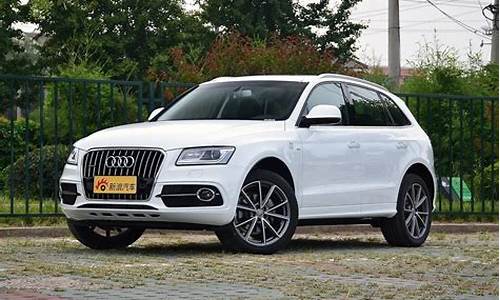您现在的位置是: 首页 > 车型评测 车型评测
pick up用法总结_pickup用法总结
佚名 2024-05-24 人已围观
简介pickup用法总结_pickup用法总结大家好,今天我来为大家详细地介绍一下关于pickup用法总结的问题。以下是我对这个问题的总结和归纳,希望能对大家有所帮助。1.新概念英语语法详解2.求八下英语(人教版新目标)unit6-10的笔记,一定要重点哦,包括词组,句型,语法,扩展,例题。3.动词短语中有很多事动词加up的,请问如何区
大家好,今天我来为大家详细地介绍一下关于pick up用法总结的问题。以下是我对这个问题的总结和归纳,希望能对大家有所帮助。
1.新概念英语语法详解
2.求八下英语(人教版 新目标)unit6-10的笔记,一定要重点哦,包括词组,句型,语法,扩展,例题。
3.动词短语中有很多事动词加up的,请问如何区分?
4.球将两个单词用横线连在一起的语法规则
5.up有什么用法呢?

新概念英语语法详解
1. 并列句我们可以将几个简单句连在一起,组成并列句,常用以下连词: and, but, so, yet, or, both…and, either…or, neither…nor, not only…but …as well, not only…but also 主谓一致: u 当主语由and , both…and 连接时,通常用复数谓语. Both the girls and the boy are his friends. u 当主语由neither… nor, either…or, not only…but also或or 连接时,谓语动词与 nor, or, but also后面的一致,在英语语法中,这被称为就近一致. Neither he nor I am going to the airport. Not only Mary but also her parents have gone abroad. 2. 一般现在时的复习,状态动词,标点符号的使用. 以下一些动词很少用与进行时态: appear(看起来), appreciate(鉴赏), believe(相信), feel(感觉到), forget(忘记), hear(听见), know(知道), like(喜欢), look like(看起来像), notice(注意到), remember(记得), resemble(形似), see(看到), think(认为), understand(理解), have(拥有),love(爱), seem(看起来), show(显示), mind(介意), sound(听起来), hate(讨厌), detest(憎恨), desire(意欲), 引号: n 引号位于一行之上,应该在句尾其他标点符号, 如逗号,句号,问好之外. n 引语的第一个词以大写字母开头. n 在said, asked, 等词后面用逗号,只有当它们位于句尾时才在它们后面用句号. n 当said, asked等词置于引语之间时,句子的后半部分以小写开头. n 当一个新的说话人开始讲话时, 要另起一个段落. 3. 复习一般过去时/不规则过去式和过去分词常用不规则动词过去式和过去分词在英语里约有300多个 put up(搭建), put out(扑灭), put on(穿上), put sb. up(为某人安排住宿), put up with(容忍), put down(抄写), put off(推迟), put away(放好,放到一边去) 4. 现在完成时复习/定语从句(见复合句部分) l 与现在完成时连用的时间副词: yet, just, before, recently, lately, ever, never, so far(迄今为止), up till now(直到现在), up to now(直到现在), since(自从), for a long time(很长时间), in the past/in the last few years(在过去的几年里), these days(目前), l 某些非延续性动词(动作开始变终止的动词), 在现在完成时中不 能与表示一段时间状语搭配: 例如:die, arrive, join, leave, go, refuse , fail, finish, buy, marry, divorce, awake, buy, borrow, lend, 这些动词并非不能用在现在完成时,而是不能接由for引导的时间状语.但是用在否定句中,非延续动词的现在完成时可以与表示一段时间的状语连用. Jane has gone away for a month. (wrong) Jane has been away for a month.(right) His father has died for two years. (wrong) His father has been dead for two years.(right) has gone to (去了某地,指人还在那里), have been to (去过某地, 人已经不在那里了)。 5. 一般过去时对比过去完成时,现在分词/过去分词 refuse/deny, bring/take/fetch, very/too 6. 冠词用法定冠词用法 (1)特指 (2)地理名词前加定冠词 l 河流the yellow river l 山脉 the Alps, the Himalayas l 海峡海湾the Taiwan Straits, the English Channel (3)由普通名词构成的专有名词前要加定冠词 l 国名及政治组织名the United States, the United Kingdom l 某些机构学校及建筑名 the British Museum l 由普通名词构成的报刊杂志名 the New York Times, the Times 零冠词 1. 街名 2. 广场名 3. 车站, 机场, 公园, 桥梁名: Kennedy Airport, Beijing Railway Station, London Bridge 4. 大学名 Yale University, Cambridge University 5. 节日名National Day, May Day, News Years’ Day 6. 多数杂志名 Time, Reader’s Digest 7. 物质名词一般意义 Water boils at 100 degrees. We can not live without air. 8. 抽象名词Life is short. Art is difficult to appreciate. 7. used to do 用法 Used to do 表示过去常常做某事现在不做了 I used to get up at seven o’clock. Experience, save, very/too 8. 比较级/最高级, 比较状语从句(见复合句-比较状语从句) A/one的区别 9. 介词用法 Passed/past, next/other 10. 被动语态总结一般现在时: is/am/are done 一般过去时: was/were done 现在进行时: is/am/are being done 现在完成时: have/has been done 过去完成时: had been done 一般将来时: will be done 过去将来时: would be done 过去进行时: was/were being done 情态动词: can be done, must be done, could be done, may be done, might be done, 情态动词完成式: can have been done, must have been done, could have been done, may have been done, might have been done, Call at(拜访某地), call out at(大声喊), call on(拜访某人), call sb up(给某人打电话), call off(取消) 11. 主语+谓语(感官动词)+doing表示正在发生的事情,+do 表示已经完成的动作. So/such So+adj. /adv. such+n. 固定用法:so many 12. 一般将来时will/be going to do will/be going to do一般情况下可以相互替换,但是要表示说话人决定做某事或者表示建议,请求, 肯定或不肯定等含义时只能用will. Watch/look at/follow, solid/firm/stable 13. 将来完成时 Hold/look, look forward to(期望), look out(当心), look up (查询,), look sb. up(拜访某人) 14. as if /though+虚拟语气, 过去完成时总结 as if /though 常在描述行为的动词后面使用, 如act/look/feel/appear/smell/sound, 后面要用虚拟语气 He looks as if he were a king. Her skin feels as if it were silk. The song sounds as if it were a sad story. He looked as if he had never lived in England. No sooner…than, hardly…when, country/countryside, continuously, continually, No sooner…than 一…就… 与过去完成时连用 I had no sooner come into the room than it began to rain. The bell had no sooner rung than the game began. 如果no sooner 放在句首, 主句的主谓结构倒装 No sooner had I come into the room than it began to rain. No sooner had the bell rung than it began to rain. Hardly…when 几乎没来得及…就… 与过去完成时连用 He had hardly got the money when the policeman caught him. I had hardly finished the last question when the exam ended. 如果hardly…when放在句首, 主句的主谓结构倒装 Hardly had he got the money when the policeman caught him. Hardly had I finished the last question when the exam ended. 15. 直接引语变间接引语 1. 引语前用that, 口语中可以省略 2. 根据句意改变人称 3. 时态变化: 一般现在时-一般过去时, 一般过去时-过去完成时, 一般将来时-过去将来时, 现在进行时-过去进行时, 现在完成时-过去完成时, can-could, may-might, must-had to, 4. 一些指示代词及表示地点及时间的词 this-that, these-those, now-then, today, tonight-that day, that night, this week-that week, yesterday-the day before, the previous day, last week- the week before, two days ago-two days before(earlier), tomorrow-the next (following) day, next week-the following week, here-there, come, bring-go, take 如果意思上没有必要改变就不用变了,比如在同一天说的话. She said she would come again tonight. He said he arrived yesterday morning. 几种特殊的间接引语 n 特殊疑问句, 语序要变为陈述语序 “Where are you going?” he asked. He asked me where I was going. n 一般疑问句, 要加if/whether “Will you come tomorrow?” he asked. He asked if I would come the next day. n 祈使句要变为不定式, 所使用的谓语要根据语气来选择 “Stay here,” the policeman said. The policeman requested him to stay there. “Close the window, please,” my mother said. My mother asked me to close the window. 常用的动词: advise, ask, beg, command(命令), order, warn, tell, urge(催促), invite, persuade, remind, forbid 16. 虚拟语气在条件句中的用法, make/do 对现在事实的虚拟, if从句中谈论的是想象的情况,主句则推测想象的结果结构: 主句用过去时, 从句用过去将来时 If you came here earlier, you would catch the train. If you spent more time on studying, you would get better result. If I were you, I would accept this offer. 注意: 如果if从句中的动词是be, 那么应该在第一和第三人称单数名词后用 were. Make/do用法 make conversation(聊天), make the bed(铺床), make a promise(许诺), make trouble(找麻烦), make progress(取得进步), make money(赚钱), make a speech(演讲,讲话), make mistakes(犯错误), make up one’s mind(下定决心) do one’s best(尽最大努力), do one’s homework(做家庭作业), do a few jobs(做家务), do sb. a favour(帮忙), do work(工作), do exercise(做练习), do shopping(购物), do business(做生意) 17. 情态动词need, must, have to 1. need 一般作为实义动词使用 l 需要某物He needs a hat. Does he need a hat? l 需要做某事need to do I need to have a rest. You need to finish your work. l 需要被…,主语与need 后的动词为被动关系:need doing=need to be done The flowers need watering. =The flowers need to be watered. 2. need用做情态动词时一般为否定形式needn’t(不必要), 可以用来回答含有must, have to 的一般疑问句, 与don’t have to 同义 Must I wash the dishes? No, you needn’t. 3. need 完成式needn’t have done 4. mustn’t 表示不应该,一般口气比较强硬,没有商量. You mustn’t get up late. Remark/observe, notice 18. have 用法总结 have a ride(骑), have a look(看), have a wash(洗), have a swim(游泳), have a fight(打架), have quarrel(吵架), have a try(尝试), have a rest(休息), have a smoke(吸烟), have a good sleep(睡觉) Pick sb up(接), pick up(拿出,学习,找到), pick out(挑出), 19. 情态动词can/could/be able to do 1. can 表示可能性 If you want, I can go with you. 2. 表示天生或学到的能力, 可以用can/could/be able to do, 三者都可以用在现在时和过去时中,在将来时中要用will be able to 3. 表示现在正在发生的事要用can Look! He can stand on his head. 4. 表示成果的完成某个具体动作时通常不用could而用be able to, 表示某动作没有成功用couldn’t Can he borrow a book successfully? Yes, he was able to borrow a book from his sister. No, he couldn’t. At 词组 At first(开始), at once(立即), at present(目前), at last(最后), at any rate(无论如何), at heart(本质上), at least(至少), at times(不时), at a loss(不知所措) 20. 复习动名词用法 1. 动名词可以做句子的主语,表语,宾语,介词宾语 2. 在含有介词的动词短语后面要用动名词, 如: look forward to, be accustomed to, be used to, be tired of , be thirsty of, go on, insist on etc. 3. 有些动词后面既可用动名词也可以用不定式,所表达的意思没有区别,常见的词: start, begin, continue, delay, mean, 4. 有些动词后面加不定式表示一件具体的事情,加动名词表示一种习惯. I like drinking coffee, but today, I like to drink some tea. 21. 复习 Steal/rob, pay back Steal表示偷偷摸摸的偷, 其宾语一般为物品 rob表示抢劫,其宾语一般是人或者某个处所 pay back 还钱, 报复 22. 介词用法 23. 复习 suggest 用法, 当建议用时后面加虚拟should +动词原形, should 可以省略. 24. 复习
求八下英语(人教版 新目标)unit6-10的笔记,一定要重点哦,包括词组,句型,语法,扩展,例题。
IT是要放在中间的,因为PICK UP是固定词组,而IT是代词,要放在两者之间.另外,IT可代指除人外的物体或动物,是单数形式.也可指事件.当然,也可做主语从句中的形式主语代指后面真正主语.上课认真听哦~
动词短语中有很多事动词加up的,请问如何区分?
Unit 6
1. how long 多长,多久
2. a skating marathon 滑冰马拉松
3. a pair of 一双,一副,一把,一条
4. raise money (for charity) (为慈善机构)募捐,筹钱
5. the whole five hours 整整五个小时
6. three and a half years 三年半
= three years and a half
7. thanks for 因……而表示感谢
8. run out of 用完,用尽
9. by the way 顺便说一下,顺便问一下
10. in Russian style 以俄罗斯的风格
11. fly kites 放风筝
12. a talent show 才艺表演
13. finish doing sth. 结束做某事
14. be interested in 对…感兴趣
15. Chinese dynasty 中国的王朝
16. famous characters 著名人物
17. think of 考虑,想起
18. in Russian style 俄罗斯的风格
19. tell sb. about sth. 把……的情况告诉某人
20. enjoy doing sth. 喜爱做某事
21. the Olympic Games 奥运会
= the Olympics
22. far away 在远处
Unit 7
1. turn down (音量)放小,(光线)调暗
turn up (音量)放大,(光线)调亮
turn on 打开(开关、按钮)
turn off 关(开关、按钮)
2. not at all 一点也不
3. right away = in a minute 立刻,马上
4. do/wash the dishes 洗碗
5. put on 穿上(动作)
6. help sb. with sth. 帮助某人做某事
7. make posters 制作海报
8. have a long telephone conversation 煲电话粥
9. wait in line 排队
10. cut in line 插队
11. follow sb. around 跟在某人周围
12. get mad = get annoy = get angry 生气,感到恼火
13. try (not) to do sth. 尽力(不去)做某事
14. seem like 看上去像……
15. even if/though 尽管、即使
16. take care = be careful 小心
17. in public places 在公众场合
18. in public 公开地,当众地
19. break the rule 不遵守规则
20. put out 熄灭
21. pick up 捡起、拾起
Unit 8
1. photo album 相册
2. leave school 毕业离校
3. take care of = look after 照顾,照看
4. too… to… 太……而不能……
5. these days 目前,现在
6. a pot-bellied pig 大肚猪
7. not … at all 根本不,一点也不
8. fall asleep 入睡
9. give away 分发,赠送
10. pay for 付……的款
11. rather than 而不是
12. in different ways 以不同的方式
13. as … as 与……一样……
14. native speakers 说本族语的人
15. encourage sb. to do sth. 鼓励某人做某事
16. make progress 取得进步
17. the Olympic Committee 奥委会
18. have fun with sth. 做某事有乐趣
= have fun doing sth.
19. hear of 听说
20. take an interest in = be interested in 对……感兴趣
21. make friends with 和……交朋友
Unit 9
1. have been to 到过某处
2. an amusement park 游乐园
3. a water park 水上公园
4. a roller coaster 过山车
5. see sb. doing sth. 看见某人正在做某事
see sb. do sth. 看见某人做了某事
6. walk around 四处走动
7. take a ride 兜风
8. on board 在船上
9. take different routes 走不同的路线
10. end up 结束
11. argue with sb. 与某人争吵
12. an English-speaking country 说英语的国家
13. an exchange student 交换生
14. a flight attendant 一名机组乘务员
15. a tour guide 导游
16. such as 例如
17. listening skills 听力技能
18. in Southeast Asia 在东南亚
19. take a holiday 度假
20. three quarters 四分之三
21. have problems (in) doing sth. 做某事很费劲
22. during the daytime = in the day 在白天
23. all year round 全年,一年到头
24. wake up 醒来,唤醒,叫醒
Unit 10
1. look through 浏览,快速查看
2. small talk 闲聊
3. a thank-you note 一封感谢信
4. be friendly to sb. 对某人友好
5. feel like (doing) sth. 想要(做)……
6. have a hard/difficult time doing sth 费了很大的劲做某事
7. come along 到达,出现,跟着来,赶快
8. get along/ on 相处
9. at least 至少
形容词的级别用法总结
形容词的级别变化分为三种情况,即原级,、比较级和最高级,每个级别的用法都有一定的规律可循。
一、原级
1、当句子里没有出现对比的情景时
例:He is a kind boy.他是个善良的男孩。
2、在very(很,非常)、quite(相当...)、rather(相当...)、pretty(很,相当...)以及too(太...)等词的后面
例:I felt very excited when I heard of this.听说了这件事,我感到很兴奋。
3、在as...as(与...一样)句型及其否定句型not so\as...as(...不如...)中
例:Zhang Ming is not so smart as Li Wen.张明不如李文机灵。
二、比较级
1、两者对比时
例:I don’t like this ruler, I like that shorter one.
我不喜欢这把尺子,我喜欢那把短一点的。
2、当句子里有than时
例:My bedroom is cleaner than hers.我的卧室比她的干净。
3、当句子里出现much、far、a lot、even等修饰比较级的词语时(a little和a bit也可以用来修饰比较级。)
例:Look, the rain is even heavier.看,雨更大了。
4、表达“越来越…”的意思时,用and连接同一个单词的两个比较级
例:The day gets colder and colder in winter.冬天,天变得越来越冷了。
English is more and more important in the modern world.
现代社会,英语越来越重要了。
5、在表达“越…,就越…”的意思时,采用“the+比较级,the+比较级”的句式
例:The moreexercise you do , the healthier you will be.
锻炼得越多,你就会越健康。
The harder you study, the better result you will have.
学习越努力,你取得的成绩就会越好。
三、最高级
1、三者或多者对比时
例:In this city, Renmin Road is the widest.在这座城市里,人民路是最宽的。
Lily is the fattest of all the girls.丽丽是所有女孩里最胖的。
2、one of 后面的形容词用最高级
例:Mr. Wang is one of the most popular teachers in our school.
王老师是我们学校里最受欢迎的老师之一。
注意:1、以重读闭音节结尾的形容词在变化级别时要双写末尾的辅音字母,如red,sad,fat,thin,big,wet,hot等。
2、多音节形容词除了可以用more和most进行最高级变化,还可以用less和 least做降级比较,且两种比较级句型可互换。如:
I think English is more difficult than Chinese.
=I think Chinese is less difficult than English.
同步练习
1.This coat is too big, please give me a _______ one.(small)
2.—How are you today, Jane?
--Thanks, I feel much _____.(well)
3.I think red apples are _______ than yellow ones.(delicious)
4.I want to be a pilot when I am _______.(old)
5.She is ________ of the three girls.(clever)
6.Liu Li is _______ in my class.(tall)
7.Changjiang River is ______ river in China.(long)
8.Who is _____, you or Jenny?(popular)
9.Which city is______, Beijing, Paris or New York?(beautiful)
10.John is my ____ friend of all the boys in my school.(good)
11.This kind of bicycle is quite _______.(cheap)
12.My skirt is as _____ as hers.(expensive)
13.You should buy a ______ computer than this one.(good)
14.The weather is getting _____ and ______.(cold)
15.This is _________ one of all the problem.(difficult)
16.Boys are _______ than girls. (active)
17.Today is her _____ day of the year.(happy)
18.It is very _____ in Shijiazhuang now, but it’s even ____ in Chongqing at this time of year.(hot)
19.In the library, _______ book is called “the Red Star”.(popular)
20.Liu Xiang runs _______ than any other runner.(fast)
21.It's not very ______to finish it on time.(easy)
22.I think English is not so ________ as physics.(important)
23.Oh, I'm too ________.(tired)
答案:1.smaller 2.better 3.more decilious 4.older 5.the cleverest
6.the tallest 7.the longest 8.more popular 9.the most beautiful
10.best 11.cheap 12.expensive 13.better 14.colder, colder
15.the most difficult 16.more active 17.happiest 18.hot, hotter
19.the most popular 20.fastest 21.easy 22.important 23.tired
U7Would you mind +动名词... ?
Parents don’t ______ their kids to stay out at night.(允许)
The waitress _____ me the wrong food.(拿来)
You should be _____ to old people. Please speak to them
_________.(有礼貌)
4. Could you please clean the _____?(院子)
5. Would you mind not _______ here?(吸烟)
6. I get annoyed when someone cuts in ______.(队)
7. We should take care not to ______(咳嗽) or sneeze
in ______.(公众)
8. It’s not right to _____(掉下) ______(垃圾) everywhere.
9. Would you mind ______(捡起) it up?
10. If you ______(违反) the rules, your teacher will be mad.
11.The waitress _________(买)a watch yesterday .
12.________(也许)in the future I should try not to be so polite.
13.There are other places where talking loudly is not ___(允许)
14.Would you mind keep your ______(声音)
15. Would you mind _______(洗)the dishes ?
16.Could you please not ______(跟着)me around ?
17.I get __(生气)when someone talks to me while I’m reading
18.Could you please come____(早一点)next time?
- Would you mind ______(turn) down the music?
- No, not at all. / of course not./Certainly not./No problem
- Sorry, I’ll do it right away / in a minute.
2. – Would you mind _________(not smoke) here?
- No, not at all. / of course not. / Certainly not.
- Sorry, I won’t do it/that again.
3. – Could/Would you please ________(turn) down the music?
4. – Could/Would you please ________(not smoke) here?
(in/after)
I’ll go to see my uncle ___ a week.
____ two hours ,they got to the top of the hill.
(turn up/turn down/turn on/ turn off)
It’s dark, Please _____ the light.
Don’t ____ the radio. It’s too noisy.
(have to/must)
It’s raining hard outside. I ____ stay at home.
You _____ finish your homework .
(a little/ a bit of/a bit)
Can’t you walk _____ faster?
Give me ____ water to drink,please.
There is still _____ time left.
球将两个单词用横线连在一起的语法规则
动词+up词组的用法
up可以用在很多动词的后面构成动词词组,意思各不相同。其中up有时候被用作介词,有时候被用作副词。
1.up表示“向上”的意思
如:
lift up举起 climb up爬上 come up上升 get up起来 stand up站起来 pick up检起 draw up升起 grow up长大 hand up拖起 put up举起 rise up升起 look up抬起头 zip up拉上 hold up举起 pile up堆起 dig up挖出 take up拿起 build up树立 set up建立
2. up表示“完成,结束”的意思
如:
use up用光 finish up完成 drink up喝干 eat up吃光 burn up烧光 wash up洗净 fill up装满 pay up付清 settle up解决 sum up总结 open up透露 end up结束 let up中止,减少 draw up停止 close up停止,关闭 swallow up吞没 beat up痛打 cover up掩盖 break up结束,分解 wind up结束
3.up表示“离开,消灭”的意思
如:
break up拆开,驱散 cut up切碎 split up分裂 divide up分割 smash up捣毁 blow up炸毁 tear up撕碎 give up放弃 dry up枯竭,干涸 crack up撞坏 litter up乱丢杂物
4. up表示“增加,变强”的意思
如:
mount up增加 pick up振作,加快 turn up开打,开大, 出现 shake up震惊 stir up激起,搅起 ease up放松
warm up兴奋 speak up大声说 heat up变热
total up加总 tense up紧张 gather up收集
speed up加速 screw up振作 build up增大
show up显现 cheer up振作起来
5. up表示“增加,变强”的意思时,还可以用在带"-en"后缀的动词后
brighten up发亮 fatten up发胖 sharpen up变快 smarten up变精明 strengthen up加强 sweeten up变甜 tighten up使紧密 toughen up使强壮 soften up变软
6. up表示“变好,改善”的意思。
如:
bring up抚育 check up核对 clear up清理,晴天clean up整理 do up整理 patch up修理polish up擦亮, 改进 light up点亮 tune up调整
tidy up整理 rub up擦亮 train up训练,培养 make up化装,和解,弥补 buy up囤积 figure up计算
fix up修理,整理 take up从事
7. up表示“关住,锁紧,固定住”的意思
如:
shut up关闭 lock up锁住 tie up栓住 chain up锁住 nail up钉住 fasten up系住 pin up钉住 block up堵塞 save up存起来 s
up有什么用法呢?
网上截取的三段材料……自己总结怕不全面
构词法
语素构成词的规则大体上可以分为如下几种类型。
A:词根单独构成词:如汉语的“人、马、牛、跑、跳、红、黄……玻璃、彷徨……”,英语的book, word, work, world, ball……这种类型的词人们称为单纯词。
B:词根+词根:如汉语的“黑板、火车、电脑、纸张、详细、消化、脸盆……”,英语的blackbord(黑板), railway(铁路), football(足球), wifehouse(家庭主妇)……。用这种规则构成的词人们称为复合词,而这种构词的方法称为词根复合法,或复合词构词法。
C1:前缀+词根:如汉语的“老张、老虎、阿三、第一……”,其中的“老、阿、第”在这些词中都是作前缀用的。这种词汉语中不多。和汉语不同,英语中这类词是大量的,如un-able”(不能)、“en-large”(使扩大)、im-possible(不可能的),dis-appear(消失)、pro-nounce(发音)、re-spect(尊敬)中的un-, en-, im-, dis-, pro-, re-等都是前缀。英语中这类前缀约有一百五十余个,它们与词根相结合构成了大量的语词。
C2:词根+后缀:如汉语的“椅子、小刀儿、石头、读者……”,其中的“子、儿、头、者”在这里都作后缀用。这一类词在汉语中也很少。英语等西方语言这一类词是大量的,例如read-er(读者),voice-less(无声的),liber-al(自由的),leng-th(长度),elocu-tion(雄辩术,朗诵法)中的-er, -less, -al, -th, -tion等都是后缀。英语中这类后缀约有一百三十余个,它们与词根相结合也构成了大量的语词。
这是几种最基本的构词法。当然,这些构词法也可以相互结合起来构造新词,例如im-man-ent(内在的,包含的)就是C1和C2的结合,是用“前缀+词根+后缀”的方法构成的,其他诸如此类的情况还有不少,这里不一一列举。这种以词根为基础加词缀构造新词的方法称为派生构词法。B和C两种构词法由于都是由两个语素的组合构成的,因而由它构成的词称为合成词,与A的单纯词相对。
构词法中还有一种缩减法,不同的语言中都有这一类方法,如“北京大学”简称“北大”,“中华人民共和国人民代表大会常务委员会”简称“中国人大常委会”,等等;英语如U.S.A.指称美利坚合众国,等等。但这类构词法在语言中的比重不大。
A、B、C是三种最基本的构词法,但每一种方法在不同语言中的比重却有很大的区别。汉语的构词法以A和B为主,C的比重非常小,简直可以略去不计;而英语等西方语言的构词法却以C为主,A和B的比重不大。不同语言的构词法为什么会有这么大的差异?这与语言的结构类型有关(后面再讨论),大体情况是:凡是富有形态变化的语言,以派生构词法为主,而像汉语那种没有形态变化的语言,则以单纯词和复合构词法为主。这些不同又给组词成句的句法带来了重大的影响,使不同语言的句法产生了重大的区别。
常见的合成词:
air conditioner空调机air raid空龚
alarm clock闹钟arms race军备竞赛
assembly line装配线baby-sitter看孩子的人
bank account银行帐户birth control节制生育
blood donor献血者blood pressure血压
book case书柜bookmark书签
brain drain人才流失burglar alarm防盗警报器
bus stop公共汽车站can opener开罐器
car park停车场contact lens隐形眼镜
corporal punishment体罚cotton wool药棉
credit card信用卡death penalty死刑
estate agent地产经纪人fancy dress(ball)化装舞会
generation gap代沟greenhouse effect温室效应
health center医疗中心heart attack心脏病发作
heart failure心国衰竭hire purchase分期付款
income tax所得税labour force劳动力
labour market劳动市场letter-box信箱
mail order邮购定单mineral water矿泉水
mother-tongue母语nail varnish指甲油
news bulletin新闻公报package holiday一缆子度假计划
pen friedn笔友pocket money零用钱
police station警察分局post office邮局
sign language手语soda water苏打水、汽水
sound barrier音障table tennis乒乓球
tea bag袋泡茶tea-table茶几
telephone number电话号码toilet-paper卫生纸
unemployment benefit失业救济金welfare state福利国家
X-ray X光youth hostel青年旅舍
central bank中央银行civil rights公民权力
compact disc激光唱盘current affairs时事
dry cleaning干洗fast food快餐
first-aid急救French fries炸薯条
general knowledge人所共知的事general public公众
higher education高等教育high heels高跟(鞋)
high jump跳高high school中学
human being人human rights人权
industrial relations劳资关系modern languages现代语言
musical instrument乐器natural history自然历史
natural resources自然资源nervous breakdown神经失常
old age老年old hand老手
open air露天open letter公开信
personal computer个人电脑polar bear白熊,北极熊
public sector公营部门remote control遥控
social security社会保险social services社会服务(事业)
social studies社会研究social work(er)社会工作(者)
solar system太阳系stainless steel不锈钢
vocal cord声带yellow pages (电话簿)黄页部分
anti-government(反政府);auto-intoxication(自我迷醉);bilateral(双边的);coexistence(共存);counter-argument (反建议);de-emphasize(不强调);ex-president(前任会长);international(国际间的);monolingual(单语的);post-war (战后的);precaution(预先防备);pro-China(支持中国); re-state(重述);subhuman(低于人类的);superimpose(加在上面);trans-atlantic(横跨大西洋的);triangle(三角); ultra-smart(超能的)。
英语中很多单词是通过合成的方式构成的,他们叫做合成词,常见合成词有合成名词、合成动词、合成形容词等几种类型。
1.合成名词
名词+名词: football足球
名词+动词: snowfall 下雪
名词+动词-ing : horse-riding骑马
名词+介词+名词: daughter-in-law儿媳
动词-ing+名词: waiting-room候车室
形容词+名词: greenhouse温室
副词+名词: income收入
介词+名词: afternoon下午
过去分词+副词: grown-up成年人
2.合成动词
名词+动词: water-cool用水冷却
形容词+动词: quick-charge快速充电
副词+动词: outact行动上胜过
3.合成形容词
名词+形容词: world-famous世界文明的
名词+动词-ing : peace-loving热爱和平的
名词+过去分词: heart-broken伤心的
动词+副词: takeaway外卖的
形容词+名词: long-distance长途的
形容词+形容词: dark-blue深蓝色的
形容词+过去分词: new-born新出生的
副词+形容词: color-blind色盲的
副词+动词-ing : hard-working勤劳的
副词+过去分词: well-known著名的
数词+名词: first-class头等的
数词+名词+形容词: ten-year-old十岁大的
数词+名词+ed : three-cornered三角的
介词+名词: indoor 室内的
合成词也称复合词,顾名思义,就是由两个或两个以上的词合在一起构成的词,可分别用做形容词或副词。合成词从表面结构上看不拘一格,种类繁多,无论记忆还是使用都十分困难,那么我们除了简单记忆这些词是由哪些词构成之外,还有没有举一反三的规律可循呢?下面我们将一一道来。
I. 复合形容词 (COMPOUND ADJECTIVES)
1. 含有分词的复合形容词
复合形容词中的现在分词与过去分词均源于定语从句中的谓语动词。
例如:
●Australia is a country which speaks English. (country 由定语从句修饰)
澳大利亚是一个讲英语的国家。
Australia is a country speaking English. (country 由现在分词短语修饰)
Australia is an English-speaking country. (country 由复合形容词修饰)
以上三个句子中,我们分别用了三种不同的方法修饰country,三种不同的修饰语与country的逻辑关系都是country speaks English,因为country是动作speak的发出者,按照修饰动作发出者用现在分词的原则,合成词应该使用English-speaking。然而短语spoken English (英语口语)是不同的,这个短语中被修饰词English是动作speak的承受者,因此,用过去分词spoken, 以上两种不同的逻辑关系必须分清。
我们再来看几个例子:
●earthshaking changes = changes which shake the earth
翻天覆地的变化(changes 是动作shake的发出者)
UN peacekeeping forces=forces which keep peace
联合国维和部队(forces 是动作keep的发出者)
record-breaking destroy=destroy which breaks record 破记录的毁坏
peace-loving people= people who love peace爱好和平的
epoch-making decision=decision which makes epoch开新纪元的/划时代的决策
fine-sounding words=words which sound fine 甜言蜜语
soft-feeling materials=materials which feel soft 手感柔软的面料
good-looking gentleman=gentleman who looks good 仪表堂堂的男士
hard-working students=students who study hard刻苦读书的学生
far-reaching influence=influence which reaches far广泛深远的影响
easygoing person=person who goes easy 随和容易相处的人
well-being children=children who are well 健康的孩子
state-owned enterprises=enterprises which are owned by state国有企业
hand-made goods=goods which were made by hand 手工制品
heart-felt thanks=thanks which are felt by heart 衷心的感谢
fast-developing industry=industry which develops fast 高速发展的产业
highly-developed countries=countries have developed highly 高度发达的国家
newly-arrived visitors=visitors who have arrived newly 刚刚抵达的参观者
well-known university=university which is known very well著名的大学
ready-made clothes=clothes which are made and ready to be used做好的, 现成的衣服
self-employed person=person who is employed by oneself非受雇于人的,从事个体职业的人
snow-covered fields=feilds which are covered by snow白雪覆盖的田野
newly-built airport=airport which is built newly新建的飞机场
从以上例子可以看出,要了解和掌握含有分词的复合形容词,首先必须了解正确使用及物动词的现在分词和过去分词的关键:
① 准确了解及物动词的分词与所修饰的名词关系,修饰动作发出者用现在分词表示主动,修饰动作承受者用过去分词表示被动。
② 准确了解不及物动词的所用时态,用现在分词表示主动含义或动作正在进行,用过去分词表示动作业已完成。
2. 含有动名词的复合形容词
sleeping- pills安眠药 = pills which are for sleeping
waiting-room候车/机/诊室; = room which is used for waiting
reading-room 阅览室 = room which is used for reading
以上例子中,我们可以看到,所有的sleeping, waiting, reading都是介词for的宾语,因此我们将这样的词称为动名词。
3.含有名词的复合形容词
许多日常用作定语的复合形容词中是以名词作为中心词而构成的,当作定语的名词是所修饰名词的组成部分时, 复合形容词自身的名词后要加上ed来构成形容词。
例如:
a warm-hearted man=a man with a warm heart 一个热心肠的人
(heart 是man的器官之一,为组成部分)
再看更多例子:
cold-blooded animals=animals with cold blood 冷血动物
a long-haired girl=a girl with long hair一个长发女孩儿
a single-armed general=a general with one arm一位独臂将军
a right-minded person=a person with right mind 有正义感的人
a left-handed person=a person who is used to the left hand 惯用左手的人
a toffee-nosed person=a person with a toffee nose 趾高气扬的人
a two bed roomed flat=a flat with two bedrooms一套两居室的公寓
a three-legged chair=a chair with three legs. 一把三条腿的椅子
注意:不可以使用名词复数担当定语, 不可以说a three-legs chair。
4. 含有名词抽象形式的复合形容词
表示所修饰的名词的性质或原材料时,使用名词的抽象形式(即原形)担当定语
例如:
●100% cotton shirt 全棉衬衣 (cotton 是shirt的原材料,不能加ed)
a 400-word composition 一篇四百字的文章(word看作是composition的原材料,而不是组成部分,因此不能加ed)
●child readings, 儿童读物 child seat(儿童座位)child workers (童工)
(以上短语中child均表示所修饰名词的性质,不可以使用名词复数children)
8-year-old boy=boy of 8 years old 一个八岁的孩子
(years在构成复合形容词后,应使用其抽象形式 year )
●duty-free goods=goods which are free of duty免税商品
●rag-and-bone man 旧货商,toe-to-toe硬碰硬地,针尖对麦芒地,针锋相对地,long-term 长期的, open-air 户外的
我们可以看到,以上复合形容词中的名词,形式均无任何变化。
II. 复合名词
(COMPOUND NOUNS)
在英语日常词汇中,有许许多多的名词是由两个或两个以上的词共同构成的,例如:
earthworm蚯蚓;earthquake地震;shorthand(速记);double-dealer (言行不一的人);break-water(防波堤);pick-pocket扒手;pickup 皮卡,小货车;sun-bathing日光浴;get-together集会;break-through(突破);a cross-roads一个十字路口;go-between 媒人,中间人;by-product副产品;touch-me-not含羞草;takeaway(外卖);make-up(化妆品);look-on(旁观者);lookout(哨所);software软件,hardware硬件,hardboard硬盘,keyboard键盘,website网站;network网络;homesick思乡;breakthrough突破;take-off起飞;sightseeing观光; right-wing右翼;laptop笔记本电脑,palmtop掌上电脑。
1.lift?up?举起?2.climb?up?爬上?
3.come?up?上升
4.get?up?起床?
5.stand?up?站起来
6.pick?up?检起?
7.grow?up?长大
8.wake up 醒来
9.broke up 分手
10.times up 时间到
11.give up 放弃
12.take up 占去 ; 开始从事 ; 占据 ; 拿起?
13.turn up 出现 ; 开大 ; 来到 ; 到达
14.make up 组成 ; 构成 ; 编造 ; 弥补
15.clear up 放晴 ; 整理 ; 清理 ; 澄清
163go up 上升 ; 上涨 ; 增长 ; 建起
17.cover up 掩饰 ; 掩盖 ; 盖住 ; 包庇
18.set up 建立 ; 设立 ; 创立 ; 树立
19.show up 来到 ; 出现 ; 露面 ; 显露
20.dry up 干涸 ; 枯竭 ; 干透 ; 干瘪
扩展资料:
例句:
1.He jumped up from his chair.
他从椅子上跳起来。
2.The sun was already up (= had risen) when they set off.
他们出发时太阳已经升起了。
3.They live up in the mountains.
他们住在山区。
4.It didn't take long to put the tent up.
没用多长时间就搭完帐篷了。
5.I pinned the notice up on the wall.
我把通知钉在墙上了。
6.Lay the cards face up (= facing upwards) on the table.
把纸牌正面朝上摆在桌子上。
参考链接:百度百科_英语语法
好了,今天我们就此结束对“pick up用法总结”的讲解。希望您已经对这个主题有了更深入的认识和理解。如果您有任何问题或需要进一步的信息,请随时告诉我,我将竭诚为您服务。
上一篇:奥迪r8二手_奥迪 r8 二手









